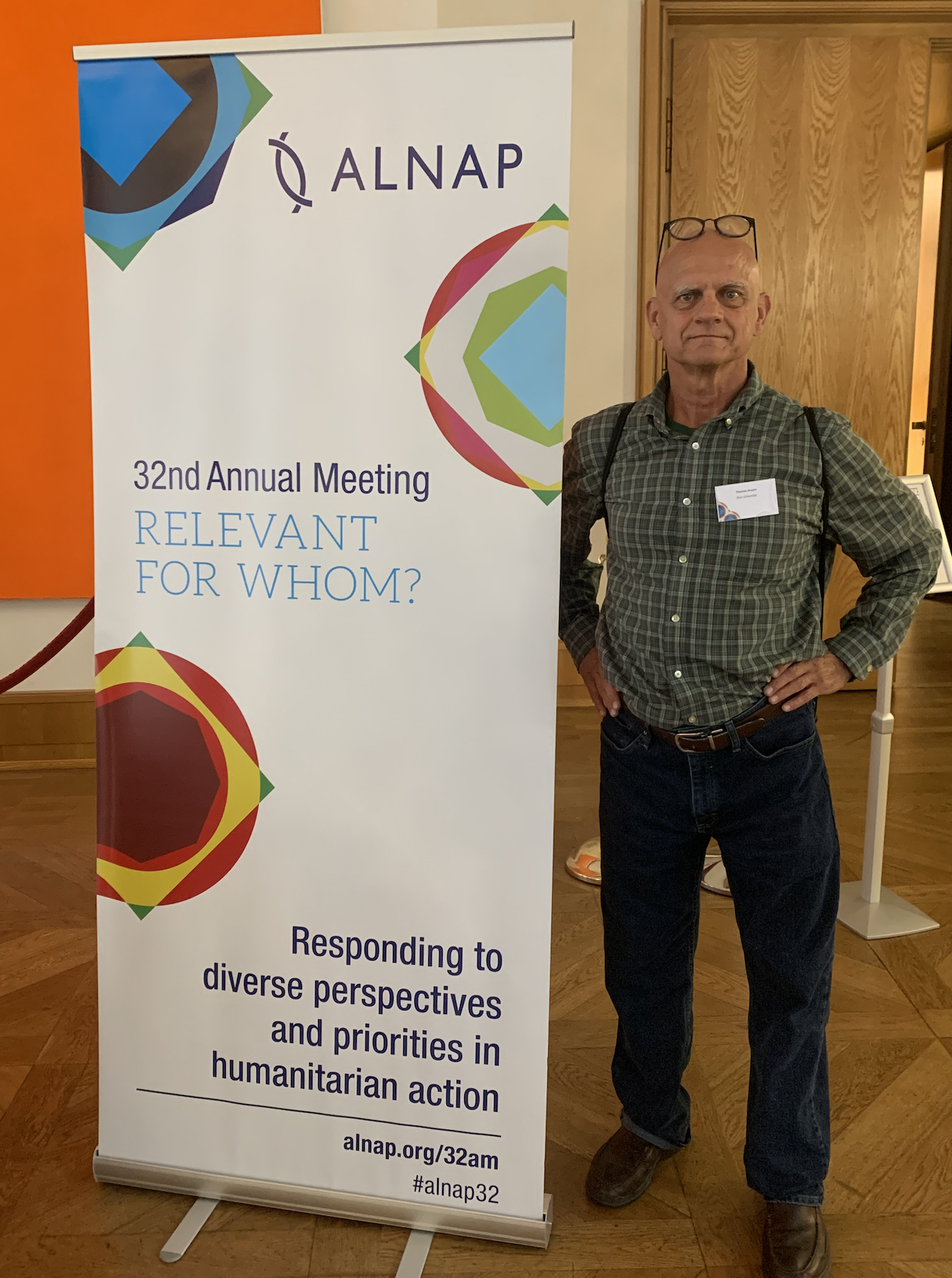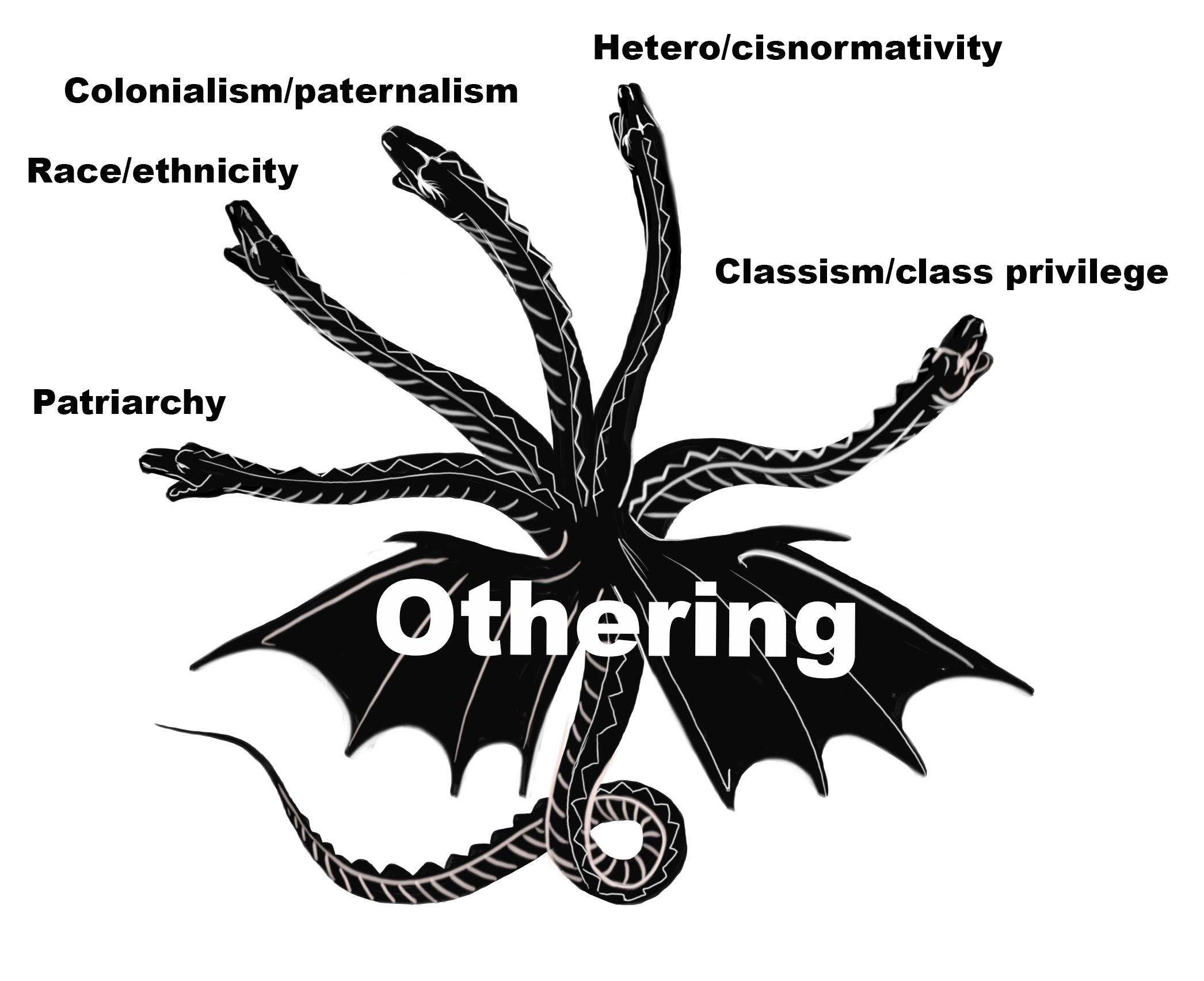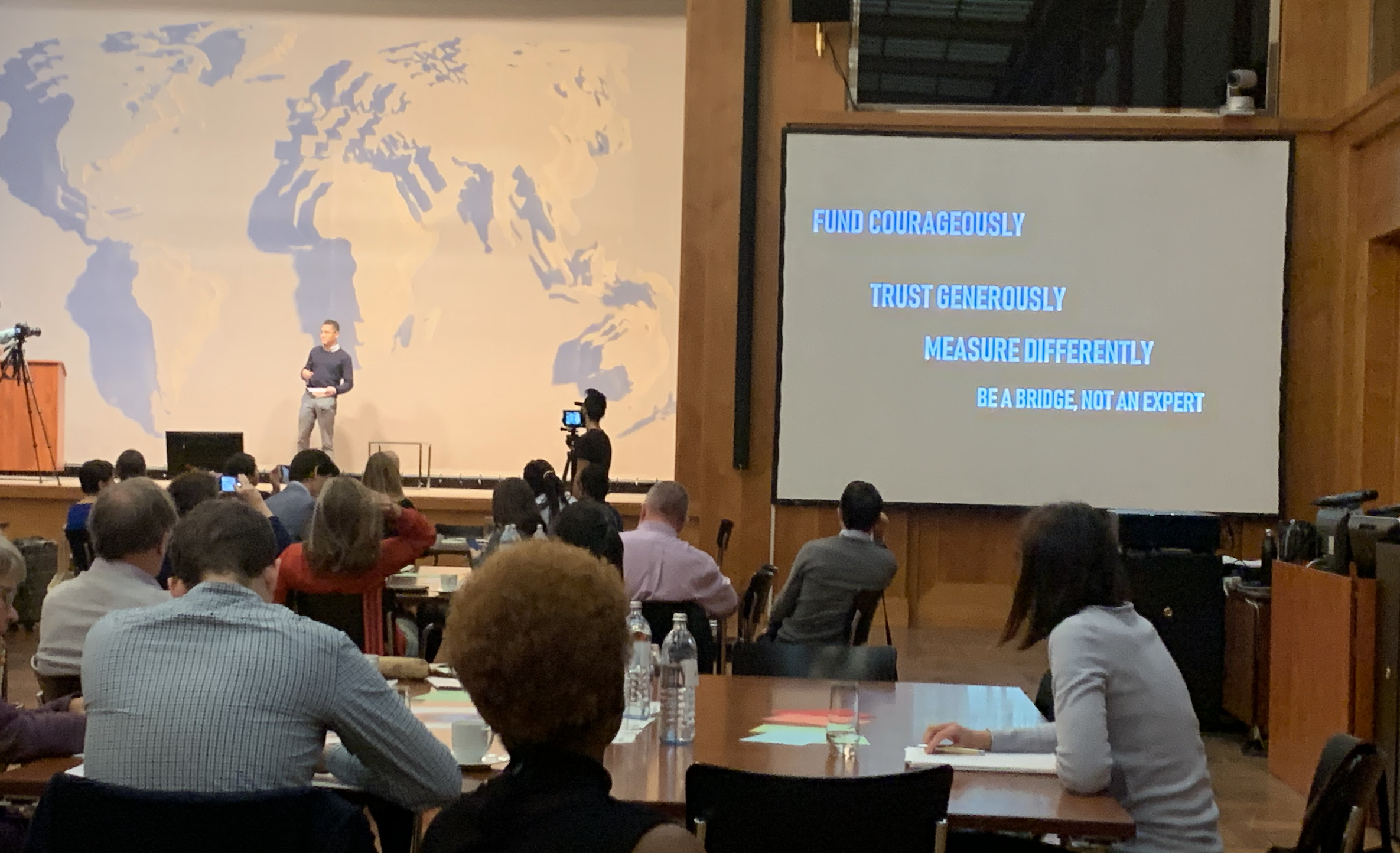ALNAP comments, Berlin 2019
[Note: I have now written a series of posts that were inspired by my invitation to speak at the 2019 ALNAP gathering in Berlin. All can be accessed by clicking here; it may be best to read them in chronological order, so you’ll need to scroll down to get to the first one.]
Reflections on what it means to be a humanitarian
Below are the comments I made as part of the ‘Jigsaw’ session at the October 2019 ALNAP conference in Berlin. These comments are an alternate version of the blog post I made about the conference theme of ‘Relevance.’
 After I gave these comments, conference participants were separated into 5 large groups and each was charged with discussing questions related to one of the five privileging forces, later to report out to the larger group. Here are the questions for each group:
After I gave these comments, conference participants were separated into 5 large groups and each was charged with discussing questions related to one of the five privileging forces, later to report out to the larger group. Here are the questions for each group:
Patriarchy – How do we see patriarchy manifesting in the 10 dimensions of a relevant response?
Race and privilege – Which core beliefs currently present in the humanitarian sector should we question and why?
Colonialism and paternalism – What would it mean in practice to remove paternalism and colonialism from humanitarianism?
Heteronormativity and cisgendernormativity – What would it mean in practice to make humanitarian response more inclusive of people of diverse genders and sexualities?
Classism/ class privilege –How might our own class privilege and identity impact the relevance of humanitarian action we have witnessed or been part of?
Jigsaw exercise Arcaro comments
I’ll assume all in this room have wrestled with their own definition of the humanitarian imperative. In so doing you have also talked with the ghosts of Henri Dunant and Florence Nightingale in attempting to clarify basic humanitarian principles, namely humanity, impartiality, neutrality, and independence. Recently some have suggested that these four principles need a 21stcentury update, and perhaps a special focus on relevance is in order as we imagine these updates. In any case, all humanitarian principles, old or new, begin with the assumption that all human lives have equal worth. Given that premise, our challenge is to discuss the relevance of humanitarian aid, that is, how well our practices honor human needs in times of crisis.
of humanitarian aid, that is, how well our practices honor human needs in times of crisis.
Our question today is, “How can we better understand power and privilege so that we can maximize the relevance of our actions as humanitarians?” The first part of question, “How can we better understand power and privilege?” has been discussed in depth by anthropologists, sociologists, and political scientists since the beginning of those disciplines nearly 150 years ago, and these questions are critically relevant as we examine how the humanitarian sector has evolved and is now functioning. To be clear, all humanitarians enjoy some level of power and privilege, and better understanding both our personal privileges and those of our organizations we can better move toward the optimization of our actions.
Numerous privileging forces exist in various ways around the world including within the humanitarian sector. Some of the more deeply rooted are Patriarchy, Race and privilege, Colonialism and paternalism, Heteronormativity and cisgendernormativity, and Classism and class privilege. By understanding both the history and the current manifestation of these privileging forces –and by considering that there may be other privileging forces that need to be described- we will be better equipped to address critical relevance questions.
A Hydra, the many-headed serpent in Greek mythology, is a good analogy here for ‘privileging forces’. According to mythology, this dragon-like beast is immortal, and when one of its heads is cut off two more grow in its place. So it is with privileging forces, an ever-present demon humanitarians must fight that has many toxic manifestations. As humanitarians, this epic battle must be fought first in the service of relevance, that is, (to quote from Sophia Swithern’s ALNAP background paper), “… in line with the priority needs of affected people.” Finally, perhaps we should keep in mind that though fighting these demons individually is a natural impulse, perhaps the body of the Hydra should be attacked most vigorously. I am confident you will find the facilitators of the breakout sessions you are soon to attend are mindful that these privileging forces are all interconnected and even at times create a toxic synergy.
By exploring questions about each entrenched privileging force we can move closer to addressing the issue of relevance.
The Hydra is ancient; most of these privileging forces are as old as humankind. By exploring questions about each entrenched privileging force we can move closer to addressing the issue of relevance. There are many important questions to be asked, but here are some examples.
each entrenched privileging force we can move closer to addressing the issue of relevance. There are many important questions to be asked, but here are some examples.
Patriarchy: How are the needs of women being met by predominantly male decisionmakers?
Race and privilege: How can ‘white’ humanitarians understand the needs of POC or the nuances of ethnic differences?
Colonialism/paternalism: How can donor entities primarily from the Global North respond to the real needs of those in the majority world?
Heteronormativity/cisgendernormativity: In a world dominated by heteronormativity how are the needs of people with diverse sexual orientation, gender identity, gender expression and sex characteristics being addressed?
Classism/class privilege: Given at times extreme social class disparities between humanitarians and the affected community how are decisions and actions made less relevant by class bias?
Unless you are a LGBTQI+ woman of color from a poor background someplace in the majority world (Global South), at least one of these privileging forces applies to you. My guess is that more than one applies to most. In my case, all of these apply to me as a hetero white male from the US. Because they will hit close to home, the questions that will be raised today about power and privilege will be uncomfortable to discuss. From this discomfort we hope that honest insights will be shared and that we can proceed forward armed with ideas that reshape our awareness of privileging forces thus making our humanitarian actions ever more relevant. I invite you to listen, learn, share, and challenge yourself and those in your session in the spirit of openness and a common search for growth. From this discomfort we hope that honest insights will be shared and that we can proceed forward armed with ideas that reshape our awareness of privileging forces thus making our humanitarian actions ever more relevant.
The outcomes
When the ALNAP participants reassembled after their group discussions, they were asked to address these additional questions:
1. Which privileging force seems the most difficult to confront and why?
2. What one question should participants ask themselves as they continue on with the rest of this meeting?
3. Based on discussions from this exercise, what is one step that you as individuals and/or your organization could take right now to make humanitarian response more relevant for affected people?
Our discussions were lively, and one theme kept reemerging, namely the need to not just hear but to listen to the voices from the majority world. One of most powerful of these voices was that of Arbie Baguios, who describes himself as a ‘Decolonial Systems-Thinker’. His presentation at ALNAP focused around four pieces of advice for those in the donor world, namely
Systems-Thinker’. His presentation at ALNAP focused around four pieces of advice for those in the donor world, namely
-
- Fund courageously
- Trust generously
- Measure differently
- Be a bridge, not an expert
Our work is ongoing and challenging, constantly demanding fresh perspectives and wise voices.
An updated definition
I wrote this for a book chapter 10 years ago:
Global citizens understand at a fundamental level that all humans are born with basic rights, share one planet and thus one fate and, further, embrace an ideology of human growth and potential based upon the assumption that all global citizens should work toward creating a global social structure wherein all humans are not only allowed to reach their full potentials –intellectual, physical and spiritual- but are actively encouraged to do so. But, that this fulfilling of human potential is done in such a way as to honor the fact that humans are only one species among many, and that we must live in sustainable harmony with all life forms on the planet. Further, global citizens understand that just as they have certain rights as global citizens, this role entails an array of important responsibilities.
Based on my experience at the ALNAP conference and on my long term research into the humanitarian sector, I offer this aspirational definition of a humanitarian.
Humanitarians understand at a fundamental level that all humans are born with basic rights, share one planet and thus one fate. Those working in the humanitarian ecosystem embrace an ideology of human growth and potential based upon the assumption that humanitarians should work toward facilitating social structures wherein every human is not only allowed to reach their full potentials –intellectual, physical and spiritual- but are actively encouraged to do so in ways that place the highest priority on maintaining and enhancing the dignity of each individual, always aware of the complex array of privileging forces in which they and the members of the communities with which they work are enmeshed. Humanitarians keep in mind that this fulfilling of human potential must be done in such a way as to honor the fact that humans are only one species among many, and that we must live in sustainable harmony with all life forms on the planet.


 Follow
Follow